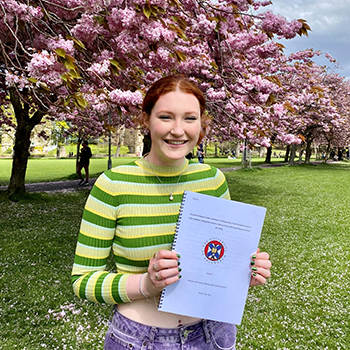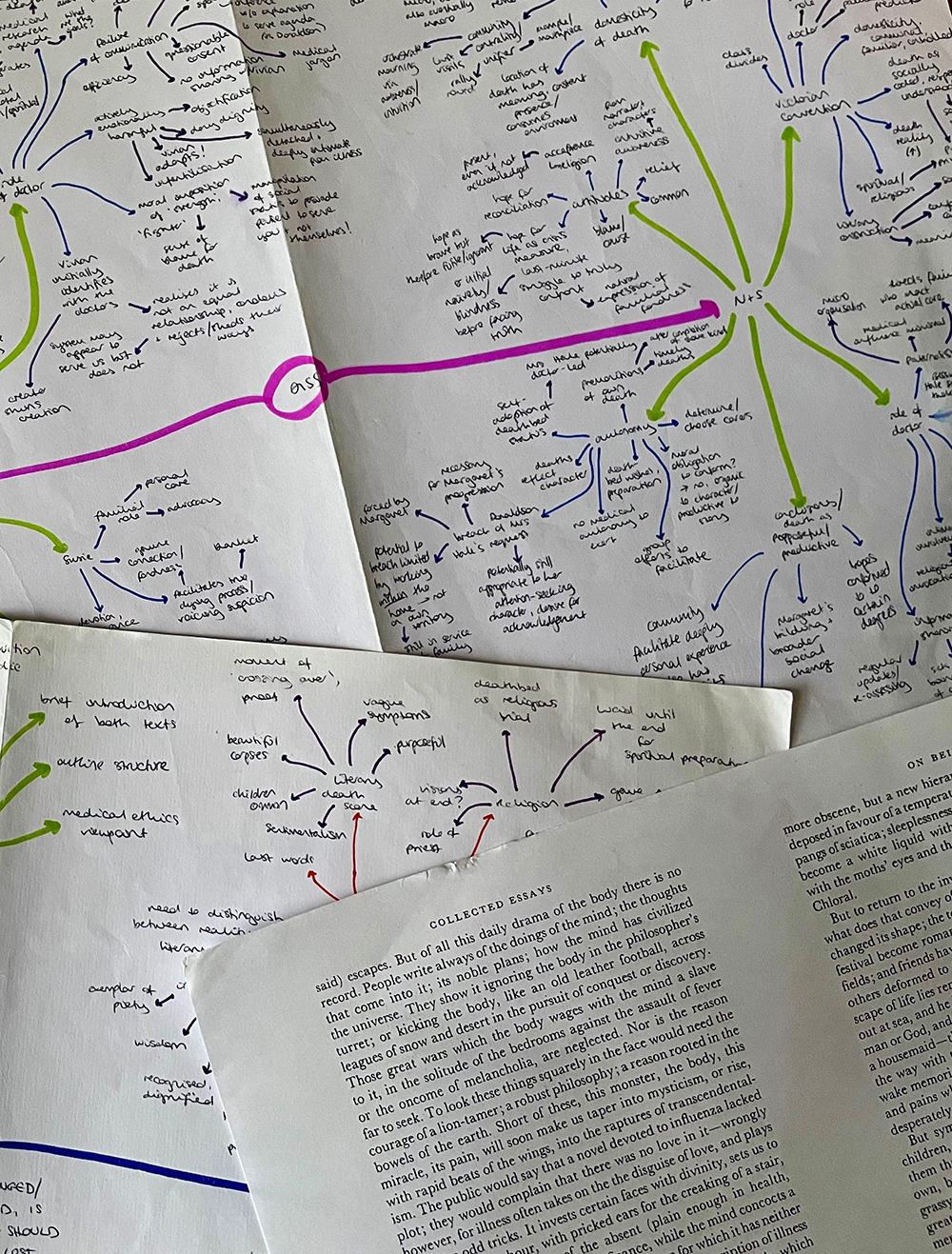 Fourth year medical student Amberley completed her intercalated degree in Literature and Medicine.
Fourth year medical student Amberley completed her intercalated degree in Literature and Medicine.
Literature and medicine might seem worlds away from many of the other intercalation options that the university provides. However, I think it’s one of the most unique opportunities out there for third year medics. Here’s an outline of my experience and why I think studying literature has shaped not only the way I view medicine but also the kind of doctor I hope to grow into.
It’s a small course with a significant proportion of external students. It was lovely to work alongside medical students who had come from universities across the country at various points in their degrees, specifically to do the course. I also came to Edinburgh with it in mind: as an aspiring medical student doing biology, chemistry and English lit A-levels, I was smitten when I came across the Literature and Medicine course during my research. I have loved books from a young age and dreamed of studying literature before turning to medicine, so the chance to do both at Edinburgh was too good to pass up.
Course structure
The course is made up of two core modules, two smaller ones that are more technical, one that is completely your choice, and a self-guided research project. The core modules consider how the disciplines of literature and medicine interact with, shape, and reflect each other through the lenses of medical ethics and illness narratives respectively. I felt so lucky to have the opportunity to take part in discussions that picked apart the intricate relationships between the two things I am most passionate about, that I never thought I would have the chance to combine.
I particularly enjoyed studying narrative medicine, which considers how illness is experienced and understood within the context of a life and consciousness. This picked up on ideas I’d been introduced to in the SEAM modules of the main course and has left me with a strong belief in the importance of holistic medicine. Writing my research project about experiences of the end of life and the medicalisation of the deathbed also saw me discover an interest in palliative care that I have carried into my clinical years and look forward to exploring further throughout my career.
 A chance to reflect
A chance to reflect
Intercalation is also a chance to reflect and have a breather after two years of medicine, as it tends to provide a slower pace, a new environment, and a whole new set of course mates. As well as reading several books a week, I got to see a completely new side of the university and what it would have been like if I’d gone down a different path. Joining honours-level literature classes as a medical student (who never even finished her English A-level thanks to the pandemic!) initially felt a bit like being an undercover agent, and there was plenty of imposter syndrome.
We were, however, given a warm welcome – some of my lecturers even seemed quite excited to consult a ‘medical perspective’ in the room. Nevertheless, it was certainly a huge challenge, especially once mid-terms rolled around and I had to figure out how to write essays, construct arguments and find and use critical material.
This required some restructuring of my brain, as it became clear that forming and manipulating ideas about abstract concepts is very different from learning facts and applying them logically in medicine. I do believe that they are similar in many ways though: narrative is, at its heart, a communication of perspective, and so analysing works of literature becomes an act of empathy, an attempt to enter and understand human experiences as they are expressed in words, and this is not unlike the role of a doctor with its unified aims of caring for and ‘reading’ patients in various ways.
Overall, then, the course left me excited to enter my clinical years and put what I wrote in my essays into practice. Taking a step aside from medicine itself enabled me to see which parts of it I am most drawn to and reminded me what a privilege it is to be in a career that sees you involved with patients’ lives so intricately and thus able to turn these theories into practical benefit.
I believe that studying literature will make me a better clinician, and I would – and do! – recommend it to any intercalating medical student.


